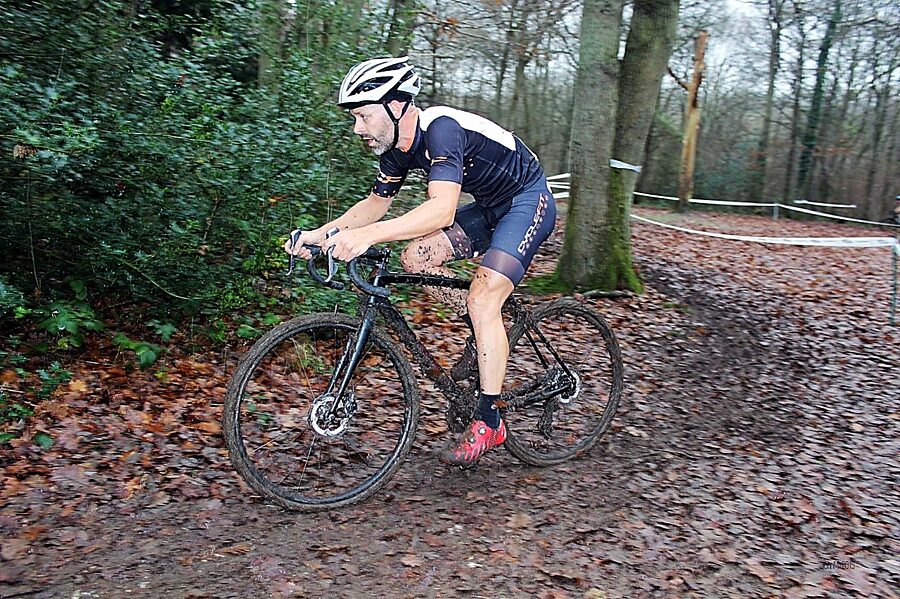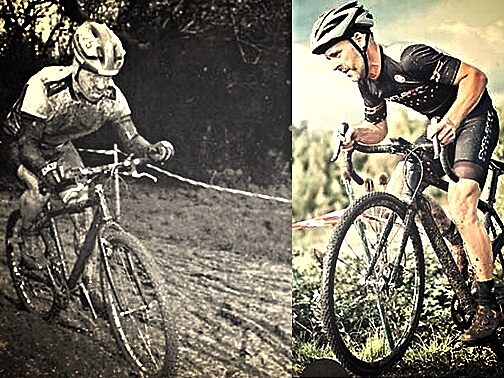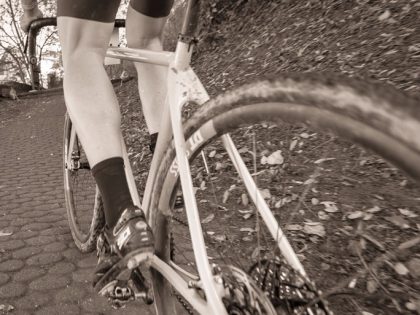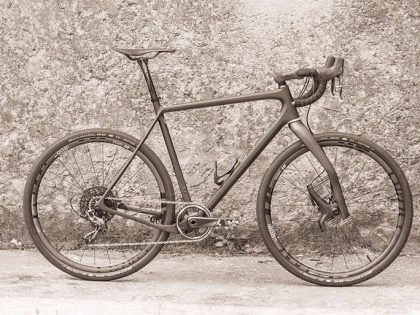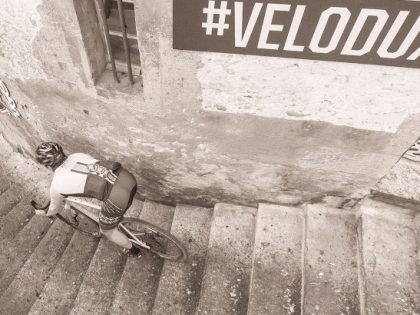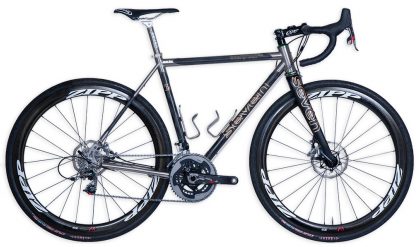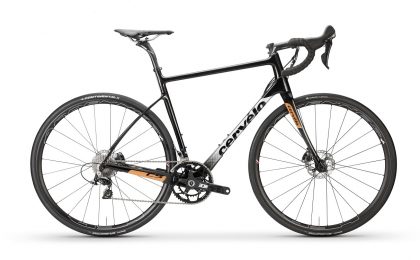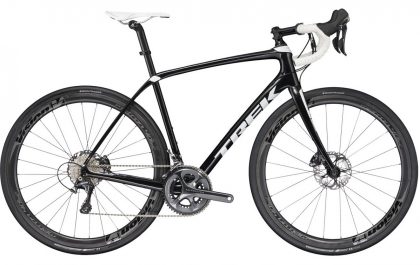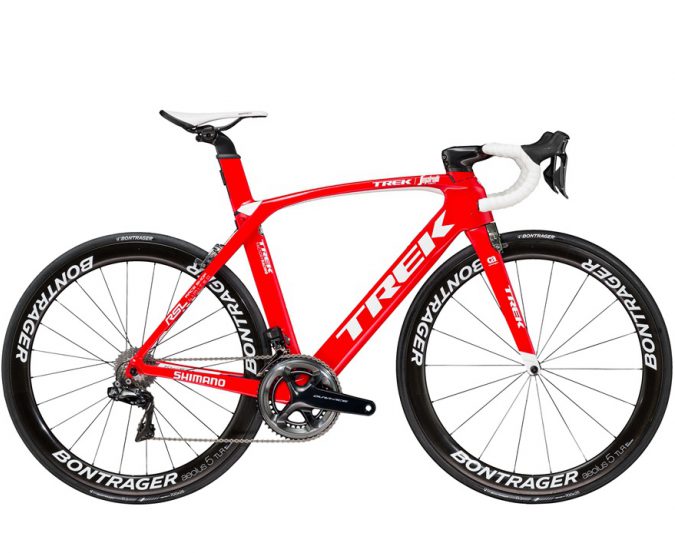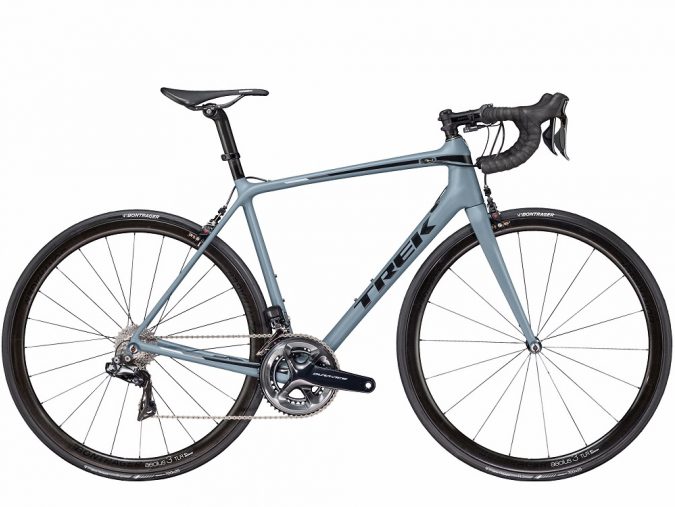Technology Leap = Adoption Conundrum
Seven or eight years ago we were getting used to having in depth conversations with customers about the relative merits of Di2 and mechanical groupsets. It always seemed (to me as least) to be fairly straightforward to outline the benefits and to debunk any myths. The technology had been widely tested by the Pro Peloton and was brought to market only when Shimano were sure it was good enough. Most decisions against using it were to do with personal preference rather than any evidence that Di2 was inferior to its mechanical equivalent. Also, Di2 was Shimano and some people do not want Shimano, which was, and still is fine. It is a choice.
We still sell lots of bikes with mechanical group sets. Very expensive ones included. Electronic versus mechanical has become one of the decisions to be made on the way to finishing a bike build.
Disc is The New Di2
Disc for Cross/Gravel
Increasingly over the past three or four years, we have been having similar conversations about disc brakes for road bikes. Again, for most of our customers it should be a fairly uncomplicated choice once the costs and benefits have been identified with regard to the intended use for the new bike.
I have ridden lots of miles on mountain, cross and road bikes equipped with rim brakes. I have ridden fewer miles on those three categories of bike with disc brakes, but enough to know that disc brakes are better brakes.
I am sure that there is nobody out there willing to argue the case for rim brakes on mountain bikes, so I will leave that one alone.
Is Power Everything (in brakes)?
As for cross bikes, I don’t think that the extra braking power of disc brakes is the main reason they trump cantilevers. Cyclo-cross racing rarely requires hard braking especially when conditions deteriorate and grip is hard to find. Cantilevers are good enough in order to modulate speed on a technical descent, as are discs. Disc brake bikes work better for cyclocross (especially if you do not have pit bike) because they offer much better mud clearance. They also mean that a wheel will last several seasons as the rim is subjected to zero wear through braking.
If you factor in training miles and riding for pleasure, these benefits are all the more relevant. That said, there are people who race regularly on cantilever equipped cross bikes. They are certainly not at a disadvantage when there is no mud. Cross bikes still look nicer with cantilevers and if the conditions mean that they are not a hindrance, the choice is perfectly valid.
Disc for Road?
Road-Disc - Power Needs Control
On a road bike, braking performance can be considered as a function of power and modulation. There is no point having very powerful brakes unless they can be applied and released progressively. Current hydraulic set ups do this every bit as well as a well set up rim brake in ideal conditions. Crucially though, they do this in all conditions. A rider can never be absolutely sure how much grip exists between in a tyre and a wet road, but having control over another variable (i.e. grip between brake bad and braking surface) makes things much easier to manage. I have been commuting on a disc brake road bike for just over a year. I can vouch for a disc brake’s consistency in all conditions. It is one less thing to think about when riding in traffic. After many years doing similar journeys with rim brakes, I would also say that braking in the wet without hearing your rims wearing away would be enough of a reason to go disc.
Discs For Sportives?
Riders taking part in mountainous sportives will enjoy similar benefits in adverse conditions. Also, disc brakes handle prolonged periods of braking better that rim brakes. Heat builds up in the rotor rather than in the rim. A hot rim can cause an inner tube to fail. A hot carbon rim can de-laminate. Both expensive scenarios. On a long descent in a group of riders you do not know, it can be hard not to feather the brakes more than you would if riding solo or with friends. Of course, on a dry road in ideal conditions, a well set up rim brake will perform just as well as a disc brake, making it a perfectly valid choice.It all comes back to the idea of “intended use”.
How many bikes does this new bike have to be?
* A dry weather early season lightweight cross bike.. then why not rim brakes?
* A cross bike for all race conditions and to train on.. it has to be disc.
* A bike to get you to work safely in all conditions and to train on through the winter.. disc.
* A dry weather classic looking fixed wheel for dry summer commutes.. rim.
* A super light climbing bike for the Alps in the dry.. could be rim brakes, but you might want a disc brake back-up just in case.
* A road bike to race on for the next couple of seasons… has to be rim.
As you can see, it depends on what the bike needs to do. Most customers are not buying just one bike, in which case is should have disc brakes unless you are willing to accept the shortcomings of rim brakes. You might be fine with that, lots of people are.
Are Calipers Obsolete?
Innovation Peak
No non-disc bikes are not obsolete, but they are, in our opinion at a point of peak innovation. All the money and R&D and focus has shifted now away from calipers to discs. I would be very surprised if calipers ever get any better/lighter/more-powerful, than they are right now. About 40% of the bikes we currently build are non-disc. And the main reason is weight. It is still relatively difficult to build a disc bike to come in sub UCI 6.8kg. For many of our clients who are riding Marmotte or Haute Route or another huge event in the mountains, they may well still opt for a traditional caliper fuselage to save 400-600 grams off the total bike weight. On the other hand opting for disc could mean the difference between taking deep-section carbons or not? Many clients are unhappy (rightly) taking deep section carbons into a week long mountainous route when the weather is uncertain. Discs can certainly remove that particular doubt and dilemma.
Racing
The other main reason clients conceive a project around a caliper fuselage is because they are racing domestically. The pro's may well be dipping their toes into discs (sometimes reluctantly - see link to clip below), but for domestic road races and criteriums discs are currently prohibited. I think it is also true to say that most professional riders would still prefer to be on a traditional caliper brake. The link below is an interview that Phil shot a few months ago with some well known Italian riders on their views on discs in the pro bunch.
Interview with Cipollini, Ballan and Salvoldelli on Discs in Pro Peloton

